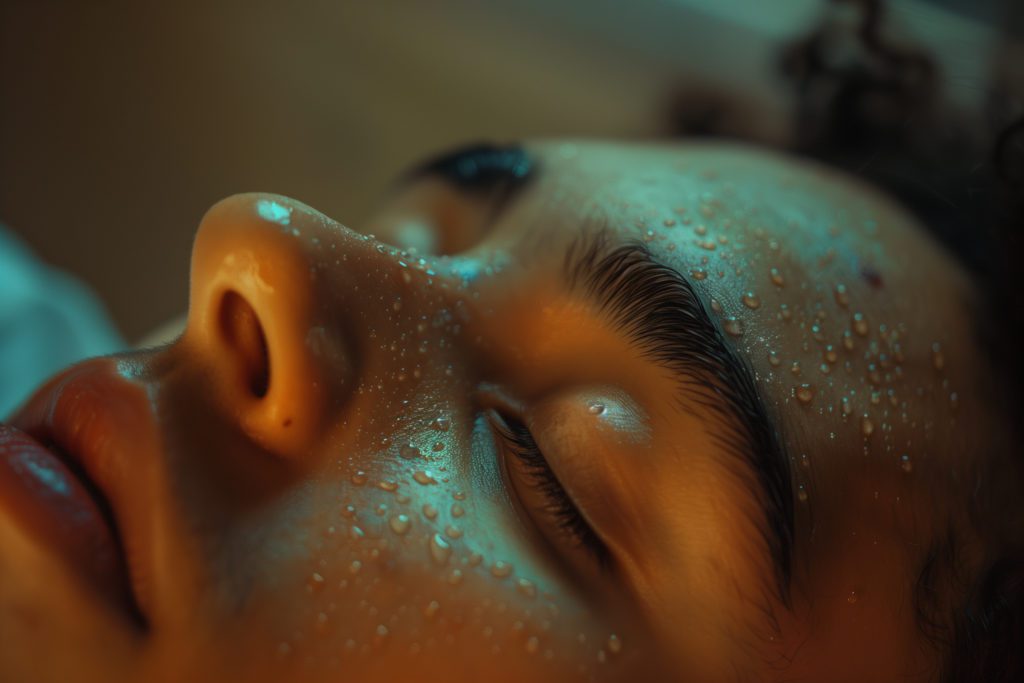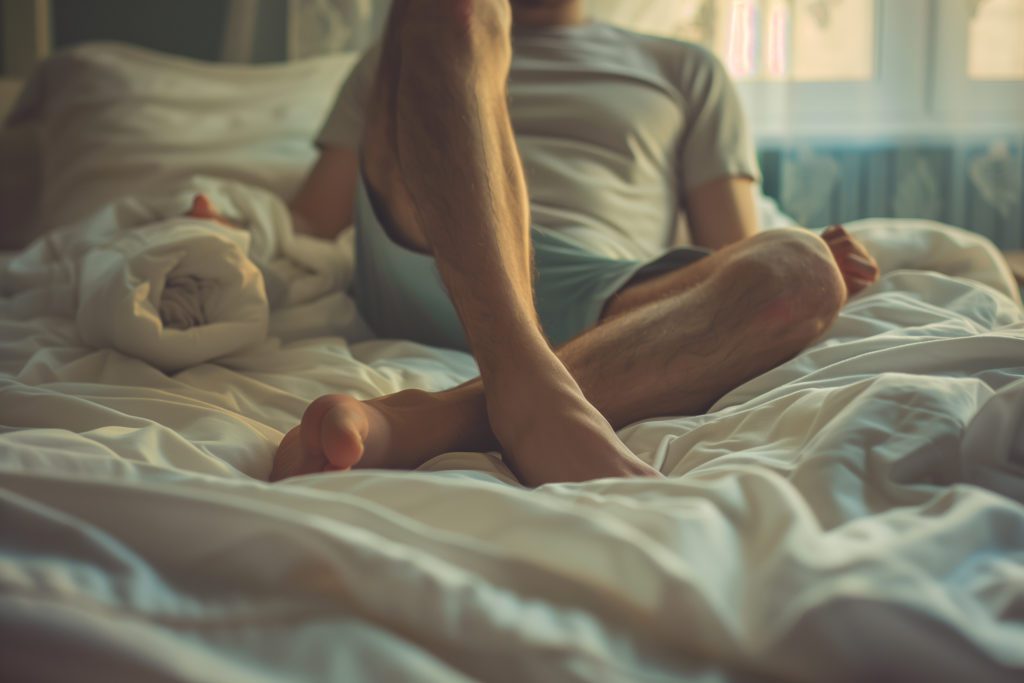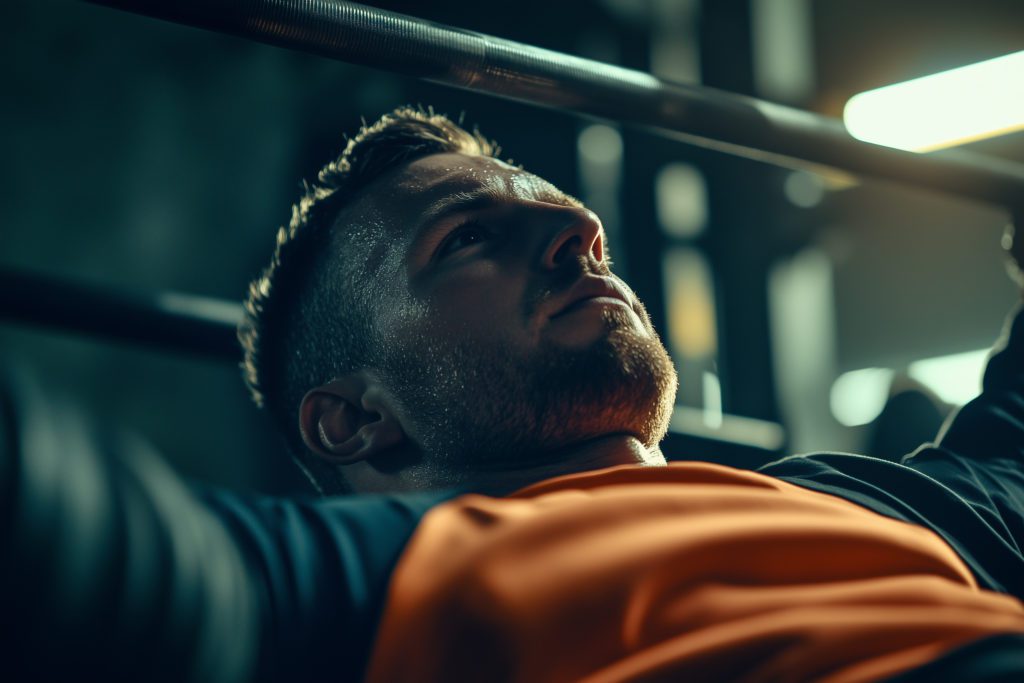
The Relationship Between Fluid Intake, Sleep, and Nighttime Peeing: What’s the Balance?
Curious about fluid intake, sleep, and nighttime peeing? Discover more about nocturia, its prevalence, and how to balance your fluid intake before bed.

How often do you get up at night to go to the bathroom? If you regularly get up to pee in the middle of the night, you’re not alone. Many people wonder why this is the case. Interestingly enough, there is an explanation for nighttime peeing, also called nocturia, which is defined as a condition where someone wakes up at least one or more times in the middle of the night to go pee.
In this article, we’ll explore nocturia, its prevalence, and the relationship between fluid intake, sleep, and nighttime peeing. We’ll also discuss how much you should drink before you go to bed and some final tips to help you reduce the likelihood of nocturia. Before we get into the tips you can implement in your life, let’s explore what nocturia is and why this condition is discussed by many researchers.
Introduction to Nocturia: Understanding Nighttime Peeing
Nocturia, also known as nighttime peeing, is the need to wake up to urinate when you should be sleeping. While you might think that some people are affected more than others, it can affect men and women of all backgrounds, ages, and health conditions, making it a prevalent concern among people around the world (Source: PubMed).
Some studies have shown that women over the age of 65 experienced a greater degree of nighttime peeing, showing that perhaps age is an indication of how likely someone is to experience this phenomenon. Additionally, men with an enlarged prostate and women after menopause might have trouble with limiting their bathroom trips, even at night, due to the fact that their bladder might need to relieve itself more often due to physiological changes. All of this is natural, of course, but it is essential to consider if you may experience nocturia.
Furthermore, those with sleep disorders, including sleep apnea, restless legs syndrome, and others, may find themselves with more prevalent occurrences of nocturia. Researchers have shown a connection between sleep apnea and nocturia, showing that sleep disturbances can actually encourage you to get up to head to the bathroom during your needed rest overnight. So, if you have a sleep disorder, it might be the cause of your nighttime peeing.
Yet, it is crucial to understand how fluid intake might cause more prevalent episodes of nighttime urination. Let’s examine the current research and what it indicates about how hydration affects sleep and nighttime peeing.
The Relationship Between Fluid Intake, Sleep, and Nighttime Urination
Many people believe that fluid intake is directly related to people’s poor sleep and increased occurrences of nighttime urination. However, you might be surprised to find out that the research varies. In one study, women who had consumed most of their fluids for the day after 5 pm actually had 38% fewer urinations at night, showing that people who may hydrate after dinner may not have to get up overnight (Source: PubMed).
This shows that fluid intake does not actually impact nighttime urination the way we might expect. Yet, when we look at fluid intake and sleep, there might be some more meaningful insights and connections. Interestingly enough, the amount of fluids that you drink before bed indicates not only how often you get up at night but also the quality of your sleep. One study showed that the elderly got up more often to urinate at night, leading to poorer sleep quality and even an increased likelihood of injuries, falls, or fractured hips.
Many researchers have concluded that reducing nighttime peeing can improve sleep quality over time. Managing your nocturia can be a great way to improve your sleep, as fluid intake can be associated with your quality of sleep and your nighttime urination frequency. But how do you improve your sleep, and how much should you drink before bed? That’s what we will look at next.
How Much Should We Drink Before Bed?
Now that you know precisely how fluid intake, sleep, and nighttime urination are connected, how much should we drink before we go to bed? We don’t want to sleep dehydrated and risk getting up with a massive headache, but we also don’t want to drink too much and get up at night—maybe even more than once. Fortunately, researchers have discovered the best way to manage nocturia and how to properly intake fluids before bed.
The most important thing is to avoid drinking excessively before you go to bed, preferably four to six hours before bed. That means having enough water but not overdoing it. It should be noted that one study showed how women who drink most of their fluids after five at night actually don’t get up at night, but no other studies have shown this to be true. Ultimately, it is best to spread out your hydration throughout the day but also to be mindful of what you are drinking.
Drinking caffeine or alcohol could increase your likelihood of having to get up to pee in the middle of the night. So, put down the energy drinks, coffee, tea, wine, beer, or spirits, and opt for water or something similar. As long as you’re not drinking a big bottle of water right before bed, you should be fine, and you should have no issue sleeping through the night without having to get up to urinate.
Final Tips on Fluid Intake to Reduce Nocturia
With fluid intake, sleep quality, and nocturia so closely related, being adequately hydrated and healthy is the key to ultimately feeling and sleeping your best. We know that sleep quality is impacted by your sleep disturbances, so don’t forget to properly hydrate, go to the bathroom before you go to bed, and limit your consumption of caffeine or alcohol later in the day. As long as you’re managing your hydration, you’ll see improvements and enjoy better sleep!
For more information about sleep health and how to encourage your holistic health, visit our website to read the latest articles and research from the field.

Written by
Marie Soukup
Marie Soukup is a seasoned copywriter, editor, and Integrative Nutrition Health Coach with a certificate from the Institute of Integrative Nutrition (IIN). With years of experience working with brands across diverse industries, Marie is passionate about holistic health and crafting compelling content.
Download Pillow
Get help
Press & News
Legal
Connect
X (Twitter)
Company
Copyright © Neybox Digital Ltd.



